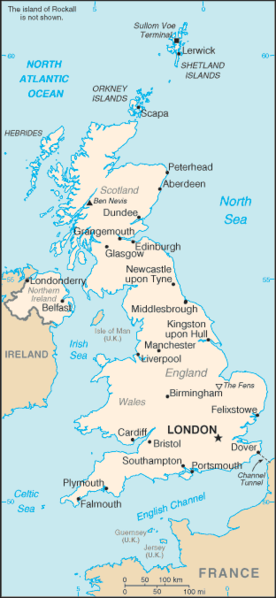A confirmed case of Ebola has been diagnosed in Glasgow, Scotland.

NHS Scotland infectious diseases procedures have now been put into effect and the patient has been isolated and is receiving treatment in the specialist Brownlee Unit for Infectious Diseases on the Gartnavel Hospital campus.
The patient is a health care worker who was helping to combat the disease in west Africa. They returned to Scotland from Sierra Leone late last night via Casablanca and London Heathrow, arriving into Glasgow Airport on a British Airways flight at around 11.30pm.
The patient was admitted to hospital early in the morning after feeling unwell and was placed into isolation at 7.50am. All possible contacts with the patient are now being investigated and anyone deemed to be at risk will be contacted and closely monitored. However, having been diagnosed in the very early stages of the illness, the risk to others is considered extremely low.
First Minister Nicola Sturgeon has chaired a meeting of the Scottish Government Resilience Committee (SGoRR) to ensure all necessary steps are being taken, and has also spoken to Prime Minister David Cameron.
According to UK and Scottish protocol for anyone diagnosed with Ebola, the patient will be transferred to the high level isolation unit in the Royal Free hospital, London, as soon as possible. This is where the facilities, staff and systems are in place to ensure the best quality and safest care.
While public health experts have emphasised that the risks are negligible, a telephone helpline has been set up for anyone who was on the Heathrow to Glasgow flight last night.
The number is: 08000 858531
First Minister Nicola Sturgeon said:
“Our first thoughts at this time must be with the patient diagnosed with Ebola and their friends and family. I wish them a speedy recovery.
“Scotland has been preparing for this possibility from the beginning of the outbreak in West Africa and I am confident that we are well prepared.
“We have the robust procedures in place to identify cases rapidly. Our health service also has the expertise and facilities to ensure that confirmed Ebola cases such as this are contained and isolated effectively minimising any potential spread of the disease.
“Scotland’s NHS has proved it is well able to cope with infectious diseases in the past, such as swine flu, and I am confident we will be able to respond effectively again.”
Professor Paul Cosford, Director for Health Protection and Medical Director at Public Health England (PHE), said:
For Ebola to be transmitted from one person to another contact with blood or other body fluids is needed. The individual involved did not experience any symptoms consistent with the transmission of Ebola, and as such, the risk that this infection will have been passed from the affected individual to others is extremely unlikely.
However as a precaution, PHE is following up all those in the vicinity of the passenger on the flight to the UK to ensure anyone who feels unwell undergoes a medical assessment rapidly. Our colleagues at Health Protection Scotland are carrying out a similar exercise for the passengers on the Heathrow to Glasgow flight.


One thought on “Ebola case confirmed in Scotland”